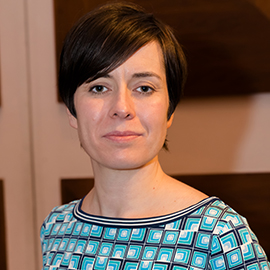Two Laurier professors have been awarded Canada Research Chair (CRC) Tier II renewals. Jennifer Baltzer, associate professor in the Department of Biology and CRC in Forests and Global Change, and Alison Mountz, professor in the Department of Geography and Environmental Studies and CRC in Global Migration, will have their CRC designations extended for an additional five years.
“These two exceptional and emerging scholars truly embody Laurier’s global commitment to innovation, sustainability and meaningful public policy,” said Rob Gordon, vice-president: research at Laurier. “We are proud of their tremendous leadership and the role that they each provide in engaging students in all aspects of their research programs.”
Baltzer is working to understand how global warming is affecting the way forests work. In boreal systems, where warming rates have been the greatest, global warming has impacted permafrost thaw, wildfire frequency and severity, and drought, all of which have resulted in widespread land-cover changes.
Baltzer is particularly interested in understanding these changes and predicting how Canada’s northern forest communities will function moving forward. The boreal is the largest forested biome on the planet and changes in the functioning of this system have global implications.
“This investment by the federal government adds to the momentum that makes Laurier an exciting environment for multi-disciplinary research in Canada’s North,” Baltzer said. “The renewal is critical for providing the time for me to focus on asking questions about how climate change is altering the ways Canada’s high-latitude ecosystems operate.”

Mountz is exploring Canada’s role as a safe haven for American war resisters. The project builds on her previous work studying the global search for asylum among migrants detained on islands off the shores of Australia, Europe and the United States.
Mountz will be collecting the oral histories of Americans who sought protection in Canada during the Vietnam War and, more recently, during conflicts in Afghanistan and Iraq. Studying the two cohorts will challenge conventional thinking about migration and refugee status and will further examine how asylum is influenced by Canada-U.S. politics and relations.
“We are seeing a shift in the way people view migration around the world and in Canada,” Mountz said. “Having this CRC renewal will allow me to devote more time to this research that is relevant and urgent for policy makers
and Canadians.”
